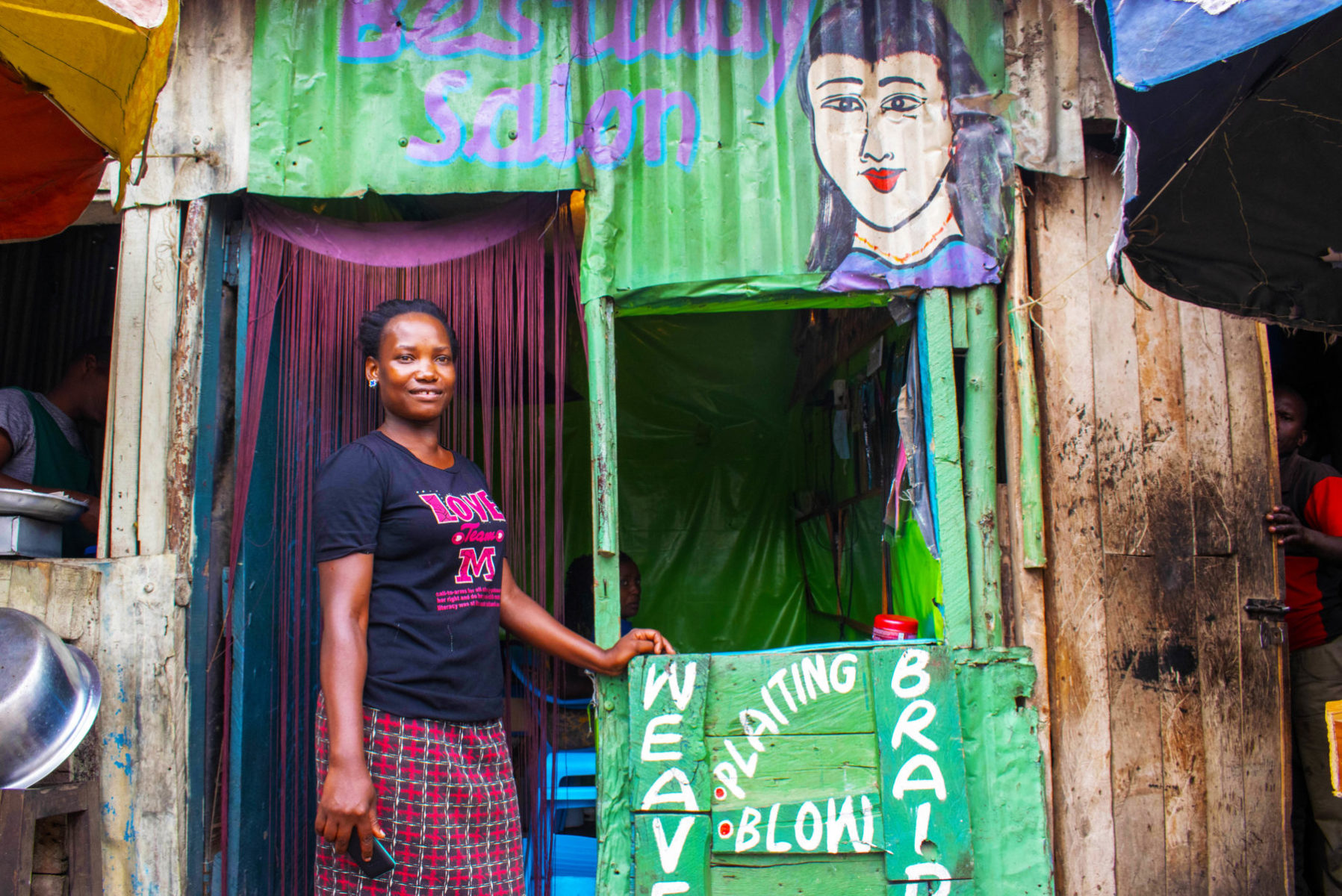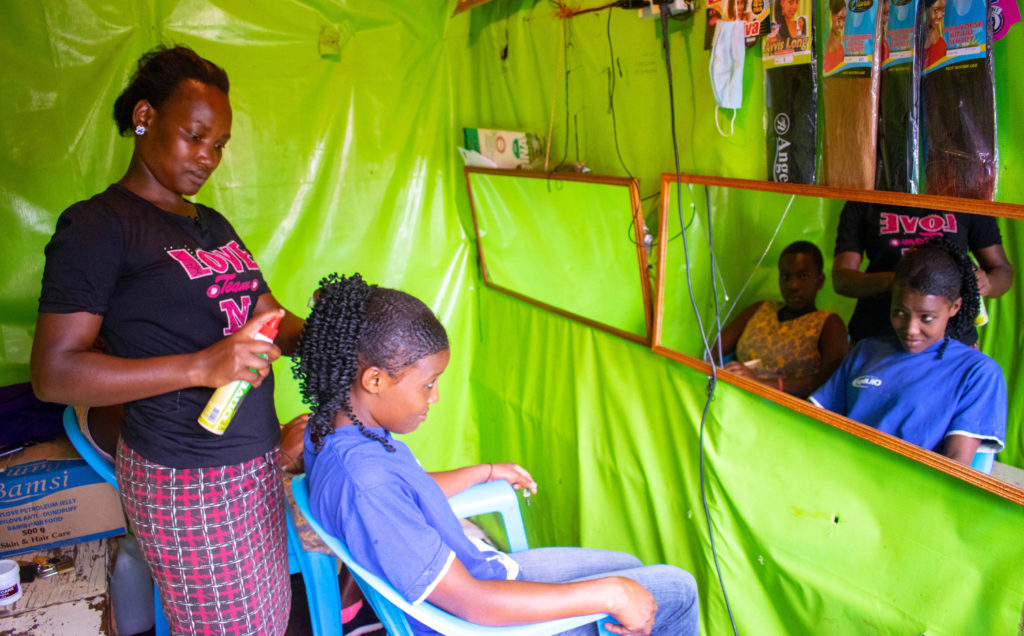
Irene had been running her business for a few years in Mathare urban slum before she enrolled in entrepreneurship and employability training at SHOFCO. The 34-year-old says:
“When I attended the training, I learnt some skills that are helping me to grow my business. Before the training I had no idea about record keeping or customer care. I was just doing the business of plaiting people’s hair to make some money to pay my bills.”
One-year after the training; there is a huge difference in how she runs her business.
“I am now keeping records of what I buy, what I use and what I earn on a daily basis. I track my profits and losses, and I am able to save some profit to increase my stock,” says the mother of three, adding that she has developed some form of financial discipline to ensure she achieves her goal of owning a boutique and salon.
“The least I can make in a day is KSH300 ($3) and the most I can make in a day especially on weekends is KSH2,000 ($20),” she says.
Irene saves a quarter of her earnings, injects half of it in her business, and uses the remainder to supplement her husband’s earnings to provide basic needs for their family.

In December 2020, Irene received KSH 31,200 ($312) interest-free loan from the Women Work Rebuild Program, a partnership between SHOFCO, Women Work Rebuild and Mastercard Foundation.
“I used the loan to buy more material and because December was a busy month I earned profit. With the money, I was able to pay fees for my three children when schools resumed in January, and repay the loan at the end of January,” Irene adds.
In addition to this, Irene and other 48 women in Kibera and Mathare urban slums are benefiting from online business training, and have been connected with an online supportive community of ambitious women entrepreneurs courtesy of the Rebuild Program.
Irene has employed two women in her business, and also offers apprenticeship opportunities to young women who are interested in learning braiding.
